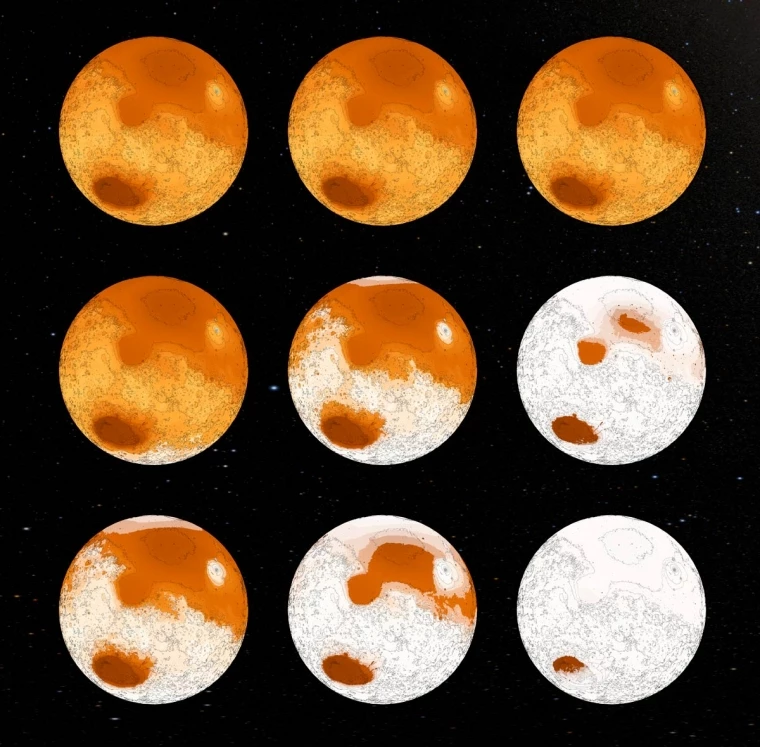Humans might not be the first lifeforms in the solar system to face the threat of their own activity changing the climate of their home planet. A new model suggests that ancient Mars was once habitable enough to support methane-producing microbes, and they may have wiped themselves out by causing irreparable damage to the Red Planet’s atmosphere.
Modern Mars is extremely cold and drier than any desert on Earth, with a very thin atmosphere. But this wasn’t always the case – decades of observation from rovers and orbiters have turned up quite clear and extensive evidence of ancient rivers, deltas, lakes, and possibly even oceans. And with that, conditions should have been habitable to microscopic life.
For the new study, researchers at the University of Arizona modeled ancient Mars, including its crust, atmosphere and climate. Most importantly, they added an ecological model of methanogens – microbes that consume carbon dioxide and hydrogen and produce methane – and investigated whether the conditions would allow them to survive, and what effects they might have on the ecosystem.
"Once we had produced our model, we put it to work in the Martian crust – figuratively speaking," said Boris Sauterey, first author of the study. "This allowed us to evaluate how plausible a Martian underground biosphere would be. And if such a biosphere existed, how it would have modified the chemistry of the Martian crust, and how these processes in the crust would have affected the chemical composition of the atmosphere.”
And sure enough, the team found that microbes could not only survive but thrive on early Mars. The simulation showed that they would be most comfortable within the first few hundred meters below the surface.

Next, the researchers modified their model to simulate what kind of feedback the microbes might have had on the ecosystem. And to their surprise, they found that their reign may have been relatively short-lived. The microbes would have removed too much hydrogen from the atmosphere and replaced it with methane, triggering a global cooling event within as little as a few hundred thousand years.
"The problem these microbes would have then faced is that Mars' atmosphere basically disappeared, completely thinned, so their energy source would have vanished and they would have had to find an alternate source of energy,” said Sauterey. "In addition to that, the temperature would have dropped significantly, and they would have had to go much deeper into the crust. For the moment, it is very difficult to say how long Mars would have remained habitable."
As intriguing as the story is, we don’t yet know that this is what actually happened. Evidence abounds that the conditions were right for microbial Martian life, but so far no evidence has been found that it existed. Thankfully, that’s one of the main jobs of the Perseverance rover, which is currently scouring a promising river delta in the search for signs of life. Other scientists believe there's a chance that some of these deep-dwelling microbes could still be alive today.
The research was published in the journal Nature Astronomy.
Source: University of Arizona




